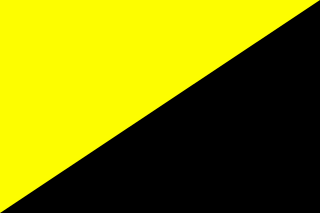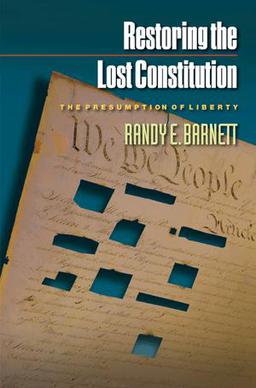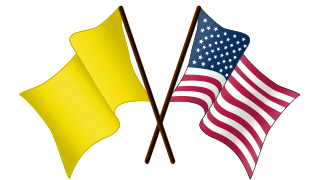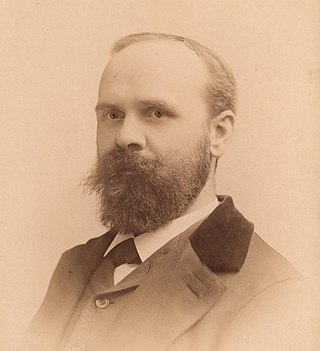
Anarcho-capitalism is an anti-statist, libertarian political philosophy and economic theory that seeks to abolish centralized states in favor of stateless societies with systems of private property enforced by private agencies, based on concepts such as the non-aggression principle, free markets and self-ownership. An anarcho-capitalist philosophy extends the concept of ownership to include control of private property as part of the self, and, in some cases, control of other people as private property. In the absence of statute, anarcho-capitalists hold that society tends to contractually self-regulate and civilize through participation in the free market, which they describe as a voluntary society involving the voluntary exchange of goods and services. In a theoretical anarcho-capitalist society a system of private property would still exist, and would be enforced by private defense agencies and/or insurance companies that were selected by property owners, whose ownership rights or claims would be enforced by private defence agencies and/or insurance companies. These agencies or companies would operate competitively in a market and fulfill the roles of courts and the police, similar to a state apparatus. Some anarcho-capitalist authors have argued that slavery is compatible with anarcho-capitalist ideals.

Murray Newton Rothbard was an American economist of the Austrian School, economic historian, political theorist, and activist. Rothbard was a central figure in the 20th-century American libertarian movement, particularly its right-wing strands, and was a founder and leading theoretician of anarcho-capitalism. He wrote over twenty books on political theory, history, economics, and other subjects.

Lysander Spooner was an American abolitionist, entrepreneur, lawyer, essayist, natural rights legal theorist, pamphletist, political philosopher, Unitarian and writer often associated with the Boston anarchist tradition.

Hans-Hermann Hoppe is a German-American academic associated with Austrian School economics, anarcho-capitalism, right-wing libertarianism, and opposition to democracy. He is professor emeritus of economics at the University of Nevada, Las Vegas (UNLV), senior fellow of the Mises Institute think tank, and the founder and president of the Property and Freedom Society.

Randy Evan Barnett is an American legal scholar. He serves as the Patrick Hotung Professor of Constitutional Law at Georgetown University, where he teaches constitutional law and contracts, and is the director of the Georgetown Center for the Constitution.

Restoring the Lost Constitution: The Presumption of Liberty is a 2003 book about the United States Constitution written by Randy Barnett, a professor of law at the Georgetown University Law Center. In the book, Barnett outlines his theory of constitutional legitimacy, interpretation, and construction. He argues that the Constitution should be interpreted by its "original meaning", distinct from the Founding Fathers' original intent.

The Structure of Liberty: Justice and the Rule of Law is a book by legal theorist Randy Barnett which offers a libertarian theory of law and politics. Barnett calls his theory the liberal conception of justice, emphasizing the relationship between legal libertarianism and classical liberalism.
The nature of capitalism is criticized by left-wing anarchists, who reject hierarchy and advocate stateless societies based on non-hierarchical voluntary associations. Anarchism is generally defined as the libertarian philosophy which holds the state to be undesirable, unnecessary and harmful as well as opposing authoritarianism, illegitimate authority and hierarchical organization in the conduct of human relations. Capitalism is generally considered by scholars to be an economic system that includes private ownership of the means of production, creation of goods or services for profit or income, the accumulation of capital, competitive markets, voluntary exchange and wage labor, which have generally been opposed by most anarchists historically. Since capitalism is variously defined by sources and there is no general consensus among scholars on the definition nor on how the term should be used as a historical category, the designation is applied to a variety of historical cases, varying in time, geography, politics and culture.
Polycentric law is a theoretical legal structure in which "providers" of legal systems compete or overlap in a given jurisdiction, as opposed to monopolistic statutory law according to which there is a sole provider of law for each jurisdiction. Devolution of this monopoly occurs by the principle of jurisprudence in which they rule according to higher law.

In the United States, libertarianism is a political philosophy promoting individual liberty. According to common meanings of conservatism and liberalism in the United States, libertarianism has been described as conservative on economic issues and liberal on personal freedom, often associated with a foreign policy of non-interventionism. Broadly, there are four principal traditions within libertarianism, namely the libertarianism that developed in the mid-20th century out of the revival tradition of classical liberalism in the United States after liberalism associated with the New Deal; the libertarianism developed in the 1950s by anarcho-capitalist author Murray Rothbard, who based it on the anti-New Deal Old Right and 19th-century libertarianism and American individualist anarchists such as Benjamin Tucker and Lysander Spooner while rejecting the labor theory of value in favor of Austrian School economics and the subjective theory of value; the libertarianism developed in the 1970s by Robert Nozick and founded in American and European classical liberal traditions; and the libertarianism associated with the Libertarian Party, which was founded in 1971, including politicians such as David Nolan and Ron Paul.
Right-libertarianism, also known as libertarian capitalism, or right-wing libertarianism, is a libertarian political philosophy that supports capitalist property rights and defends market distribution of natural resources and private property. The term right-libertarianism is used to distinguish this class of views on the nature of property and capital from left-libertarianism, a variant of libertarianism that combines self-ownership with an anti-authoritarian approach to property and income. In contrast to socialist libertarianism, right-libertarianism supports free-market capitalism. Like most forms of libertarianism, it supports civil liberties, especially natural law, negative rights, the non-aggression principle, and a significant transformation of the modern welfare state. Practitioners of Right-libertarianism usually do not self-describe by that term and often object to it.
Individualist anarchism in the United States was strongly influenced by Benjamin Tucker, Josiah Warren, Ralph Waldo Emerson, Lysander Spooner, Pierre-Joseph Proudhon, Max Stirner, Herbert Spencer and Henry David Thoreau. Other important individualist anarchists in the United States were Stephen Pearl Andrews, William Batchelder Greene, Ezra Heywood, M. E. Lazarus, John Beverley Robinson, James L. Walker, Joseph Labadie, Steven Byington and Laurance Labadie.

The Ethics of Liberty is a 1982 book by American philosopher and economist Murray N. Rothbard, in which the author expounds a libertarian political position. Rothbard's argument is based on a form of natural law ethics, and makes a case for anarcho-capitalism.
This is the chronological list of books by the Austrian school economist and philosopher Friedrich Hayek. The dates in brackets are the original year of publication of the book.

Libertarian conservatism, also referred to as conservative libertarianism and conservatarianism, is a political and social philosophy that combines conservatism and libertarianism, representing the libertarian wing of conservatism and vice versa.
This article is a list of major figures in the theory of libertarianism, a philosophy asserting that individuals have a right to be free. Originally coined by French anarchist and libertarian communist Joseph Déjacque as an alternative synonymous to anarchism, American classical liberals appropriated the term in the 1950s for their philosophy which asserts that individuals have a right to acquire, keep and exchange their holdings and that the primary purpose of government is to protect these rights. As a result of this history, libertarians on this list may be either of the American-style free-market variety or of the European-style socialist variety.

Consequentialist libertarianism, also known as consequentialist liberalism or libertarian consequentialism, is a libertarian political philosophy and position that is supportive of a free market and strong private property rights only on the grounds that they bring about favorable consequences such as prosperity or efficiency.
Articles in social and political philosophy include:
The following outline is provided as an overview of and topical guide to libertarianism:

Benjamin Ricketson Tucker was an American individualist anarchist and self-identified socialist. Tucker was the editor and publisher of the American individualist anarchist periodical Liberty (1881–1908). Tucker described his form of anarchism as "consistent Manchesterism" and "unterrified Jeffersonianism".









